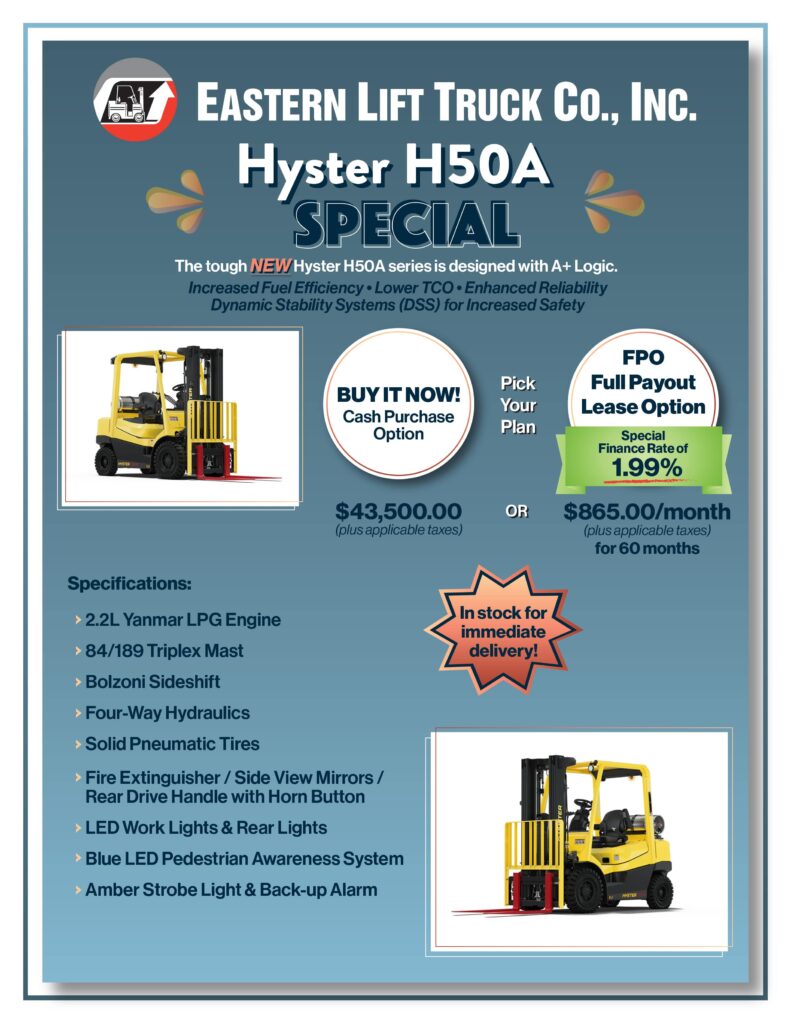Hydrogen Power Benefits
- Increased Uptime – Currently, most electric lift trucks use lead acid batteries. Once the battery charge expires, the battery must be removed and taken to a charging room, and a freshly charged battery must be installed. This equates to 20 minutes of lost productivity every four to eight hours. Hydrogen fuel cells can be rapidly refueled in just three minutes. In multi-shift operations with two or more battery replacements per day, the quick refueling of hydrogen fuel cells saves time and increases operator efficiency. Furthermore, since lift truck operators can refuel hydrogen themselves, operations can keep business moving and make more efficient use of labor resources.
- Reduce Infrastructure – On-site hydrogen generation and fueling equipment consists of a compact hydrogen generator and auxiliary equipment located outside of the building, eliminating the significant indoor space required for battery charging and storage rooms. This enables more efficient use of existing space, while growing throughput capacity and productivity. This is especially beneficial for operations located close to urban centers with higher real-estate costs, enabling them to avoid large capital expenditures, such as investing in a larger facility.
- Zero Harmful Emissions – With only water vapor and heat as byproducts, hydrogen fuel cells produce zero harmful emissions. On average, companies that generate hydrogen on-site can expect a 33 percent average reduction in greenhouse gas emissions compared to lead acid battery systems. The disposal of batteries affords further financial and environmental advantages for hydrogen fuel cell-powered systems. Lead acid batteries typically require replacement every three to four years, accumulating replacement costs and burdening operations with the disposal of depleted units. However, fuel cells only need replacement every ten years, resulting in a lower lifecycle cost, reduced disruption to operations and minimal environmental impact.
- Constant Power – Hydrogen fuel cells deliver constant voltage until fuel tanks are depleted. This means that in normal operating conditions, fuel cell powered lift trucks experience no performance degradation during the shift, running at full speed and reducing wear on truck motor controllers. Compared to battery-powered lift trucks that suffer performance degradation over the last half of the battery charge, hydrogen fuel cells offer sustained performance and improved component longevity.


























